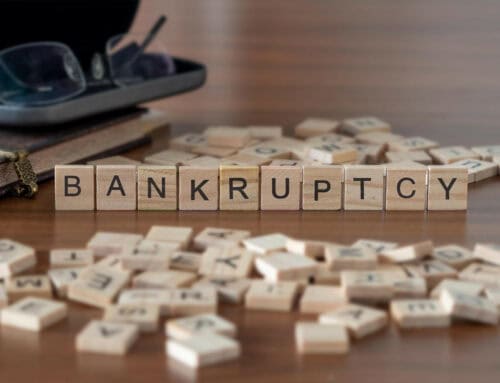What Assets Are Exempt When Filing For Bankruptcy?
Although many believe that you must give up assets such as your home and car when filing for bankruptcy, that’s typically not the case. Depending on your specific circumstances, certain types of property can be declared exempt from the proceedings.
Types of Exempt Property
Individuals who are filing for Chapter 7 bankruptcy can choose to keep exempt assets as long as they are able to make any payments due on these assets. Exempt assets under Chapter 7 can include your home, car, retirement accounts, and other personal belongings, though they must fall under a specific value determined by the state.
Because exemptions are designed to give the person filing for bankruptcy a fresh start, luxury items such as expensive jewelry, artwork, boats, vacation homes, and other valuable items are not exempt and will typically be sold to repay creditors.
With Chapter 13 bankruptcy, your debt is rearranged rather than completely discharged. The value of property you are able to keep is determined by the amount of disposable income you are able to apply towards the debt repayment plan that’s established by the court. The court will account for the value of any retained property when determining your monthly repayment amount.
Your bankruptcy filing documents will list the assets you plan to keep, as well as their value. This must be approved by the trustee assigned to your case.
Calculating Exemptions
The court uses a state-established formula to determine if property is exempt. For example, most homeowners in California can keep a primary residence where the amount of equity in the property is less than $100,000. Senior citizens and disabled individuals are typically allowed to keep $175,000 in equity in a residence. For a vehicle, the state’s exemption limit is $3,050.
If you own a home that is worth $200,000, the court may require you to sell the home and keep $100,000 to purchase another home, putting the other $100,000 towards repaying your creditors. Although some states allow married couples filing bankruptcy together to double the value of exemptions, this is not the case in California.
In most states, individuals can choose whether to use the state or federal system to calculate exemptions. However, California is unusual because you can choose between two state exemption systems. A qualified bankruptcy attorney can explain how each system would apply to your situation.
In general, the first system is more advantageous for homeowners with significant equity, while the second system is better for those who own and want to keep valuable assets.
Do you have debt you can’t afford to pay? In Ventura County, Brent George Law can help you determine whether filing for bankruptcy is the right choice to resolve your debt. Contact us today for your free consultation.
Disclaimer: This article is intended for informational purposes only and does not constitute legal advice. For personalized assistance, please contact our office at (805)494-8400.





